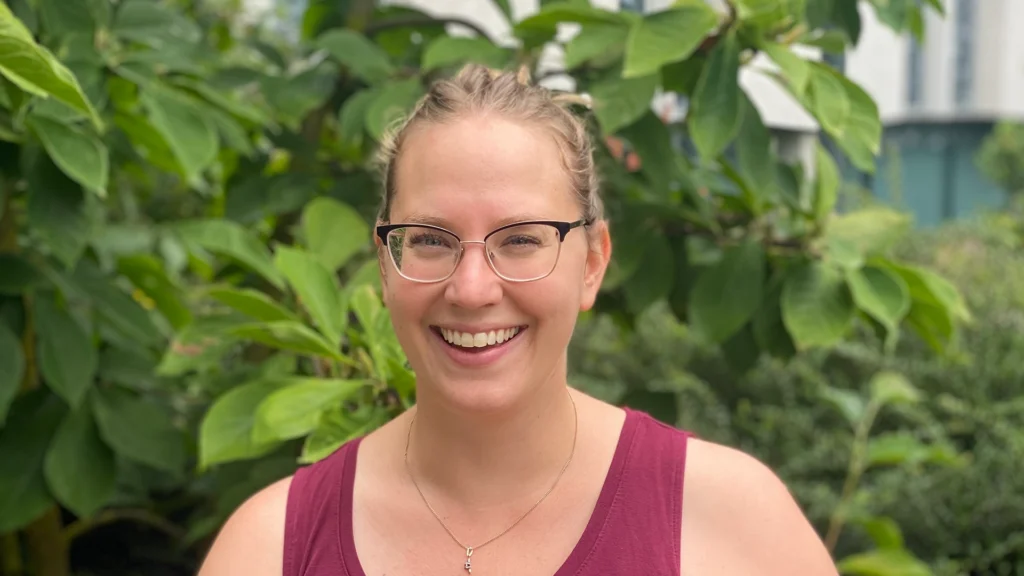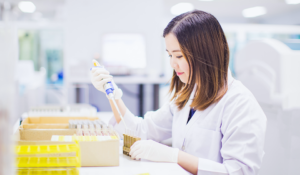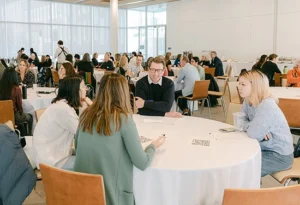
Dr. Alyssa Weinrauch is the third annual recipient of the J. Andrew McKee Fellowship in Type 1 Diabetes (T1D), jointly funded by Breakthrough T1D Canada and the Stem Cell Network (SCN) based at the Breakthrough T1D Centre of Excellence at the University of British Columbia (UBC).
The J. Andrew McKee Fellowship in Type 1 Diabetes, aims to help accelerate Canadian research, develop talent and enhance Canada’s global leadership in T1D research. The Fellowship Program is named in honour and memory of John Andrew McKee, who was Past President and CEO at Breakthrough T1D (then known as JDRF) and a long-standing member and Chair of SCN’s Board of Directors. Andrew played a significant role in developing the future of both organizations and believed deeply in the important role of science in making Canada a better place for all.
Dr. Weinrauch will be joining the Breakthrough T1D Centre of Excellence from the University of Manitoba where she was a postdoctoral researcher.
Breakthrough T1D had the pleasure of connecting with Dr. Weinrauch to congratulate her on her new fellowship and discuss her research.
Tell us a bit about your background:
I did my BSc and PhD at the University of Alberta studying Physiology, Cell and Developmental Biology. Throughout both degrees (and my postdoc at the University of Manitoba), I was fortunate to work at the Bamfield Marine Sciences Centre on Vancouver Island studying comparative physiology. My PhD studies focused on the digestive physiology of an evolutionarily important and ancient fish, the hagfish. My postdoc then investigated evolutionary endocrinology by investigating other animals near the base of the tree of life, such as sharks and sturgeon. I think the conserved function of hormones like insulin between sharks and humans is fascinating and that led me to pursue this current position at UBC studying how lipids can influence insulin secretion from islet cells.
What brought you to Vancouver?
I have heard wonderful things about the people and facilities at UBC. I met one of my supervisors at a conference and the work he presented really wowed me. It made me jump at the chance to work with him and move into a field that has applicability for human health.
What drew you to type 1 diabetes?
I am actually a type 1 diabetic, so I think throughout my scientific journey I have gravitated towards understanding my own disease by learning about the underlying physiology. I first approached it from an evolutionary perspective studying animals that have insulin but that are more ‘simplistic’ than humans in some ways. It is quite exciting to transition into working with human cells and gain a deeper understanding of T1D.
What are you planning on investigating at the Breakthrough T1D Center of Excellence at UBC?
My research focuses on understanding how lipids affect the development and maturation of stem cell derived beta cells. Stem cell derived beta cells offer unlimited potential for curative therapy of T1D. However, currently they do not mature to the same level as human islets, and we believe that lipids may be involved in getting the immature stem cell derived beta cells to that final maturation stage.
How is the Breakthrough T1D-SCN fellowship going to impact your research?
It has already brought together a great team of researchers. I will be co-supervised by Drs. Dan Luciani, Francis Lynn, and James Johnson who each have a unique and applicable skill set for the proposed work. This fellowship allows us to develop a more nuanced project given everyone’s expertise, as well as the rest of the members of the BreakthroughT1D Centre of Excellence at UBC. It also allows me to attend conferences that are new to me and will be a great way to be introduced to and integrated with the stem cell and diabetes research community.
What are some of your favourite aspects of what you do as a researcher?
I love the diversity of my job as a researcher; how I can go from writing to lab work to data analysis depending on what I feel on a given day. It also has a lot of creative license. It’s exciting to read a new paper and be inspired to design an experiment with a new perspective.
What were some of the more surprising aspects or challenges of your research?
Learning how to fail and persevere was a huge component of becoming a good researcher. Science is so much failure and intricate troubleshooting before a result and I don’t think a lot of us expect that when starting out in research.
What interests you or excites you outside of your research?
The ocean! I’ve loved studying animals that live there and now being in Vancouver myself I can explore so many new beaches and hiking trails with the ocean in reach.
Breakthrough T1D Canada thanks Dr. Weinrauch for her time and congratulates her on the fellowship award. We wish her the best of luck with her research, and we will share research updates when they become available.



